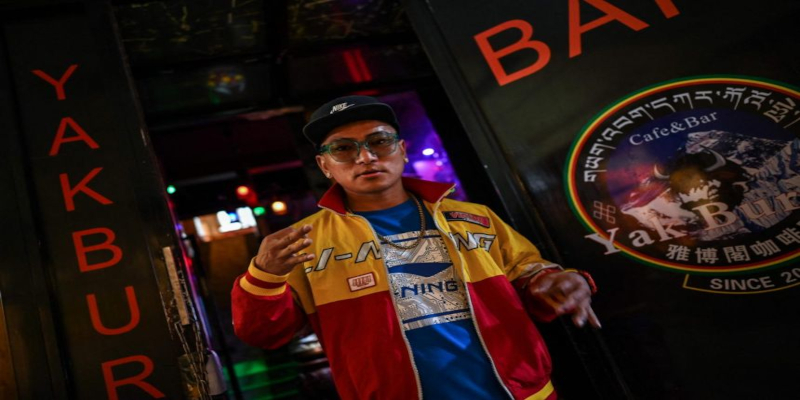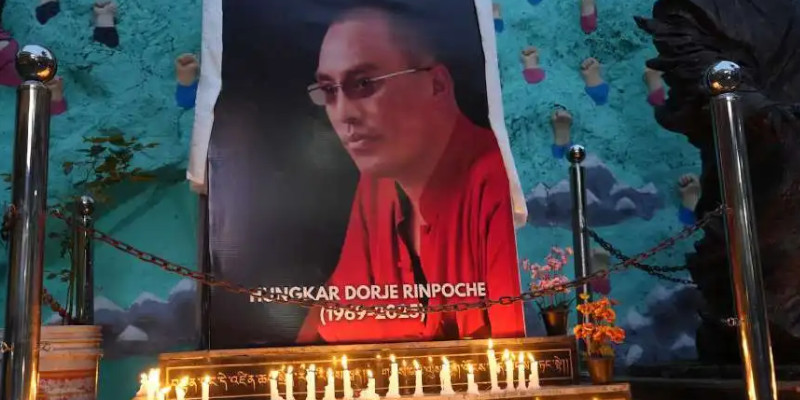28th June: The self-proclaimed “Godfather” of Tibetan rap is a key figure in the region’s hip-hop scene, where strict societal restrictions clash with the outspoken art form. Tibetan rappers tread a fine line that their international counterparts do not, with some discreetly expressing local pride and Buddhist identity in coded rhymes to avoid Chinese authorities’ unwelcome attention. In his home hamlet of Passum at the foot of Mount Everest, Hip-hop was found, listening to American superstars, like Eminem and 50 cent.
In the decade since Tenzin was one of the first pioneers of a home-grown Tibetan scene. With the inauguration in 2017 of the popular Rap Of China TV talent contest, Chinese hip hop gained a big boost, and Tibetan admirers think the lyrical flood of Buddhist chants complements the rhythms of rap.
According to one researcher at Georgetown University, 2019, a study based on interviews with dozens of Tibetan singers shows, several younger rappers with Tibetan heritage are stirring borders by expressing cultural pride. Over the decades, Tibet alternated between independence and China’s domination, which said that the rough plateau in 1951 was “peacefully emancipated.”
In 2008, after mounting discontent at the perceived degradation of their traditional culture through fast China-fuelled growth, the region exploded in violent riots and regulations have been extremely severe ever then. Stylish rapper Uncle Buddhist sings in his videos from the ‘unified one root’ of Tibetan culture, between fashionable neon-lit parties and meadows on horseback.
His song Tsampa refers to the staple cuisine from Tibet that represents Tibet’s cultural pride and unity. Subtle opposition to Chinese pressure to secularise and assimilate religious overtones and singing in Tibetan can also be expressed.
However, most Tibetan rappers remain with good communications and visuals such as temples, colourful flags of prayer and robbed monks of the maroons. A smash with the catchy Karma anthem, Fly, was a hit by popular hip-hop duo Annu who told the listeners to “seek the highest soul.” In a different, they rap about the “essence of Buddhism” and rail against material gaps. In the end the blossoming MC Tenzin moved into the major metropolis, Lhasa, against the desires of his parents.
He usually uses Douyin – the Chinese version of the social media site TikTok – along with living events to broadcast his music and communicate with followers, rapping in Tibetan, Mandarin, English, and Nepalese. However, because the Tibetan scene is still so young, MC Tenzin also works as a tour guide to supplement his income – or the support of his parents, who “don’t understand rap music.” His parents had intended for him to settle down in their hamlet with his family and practice brotherly polyandry, a once-common social practice in which numerous brothers marry the same woman. In the end, MC Tenzin believes his purpose is to provide his fans a musical blessing.
Image Courtesy: straitstimes







Leave a Reply